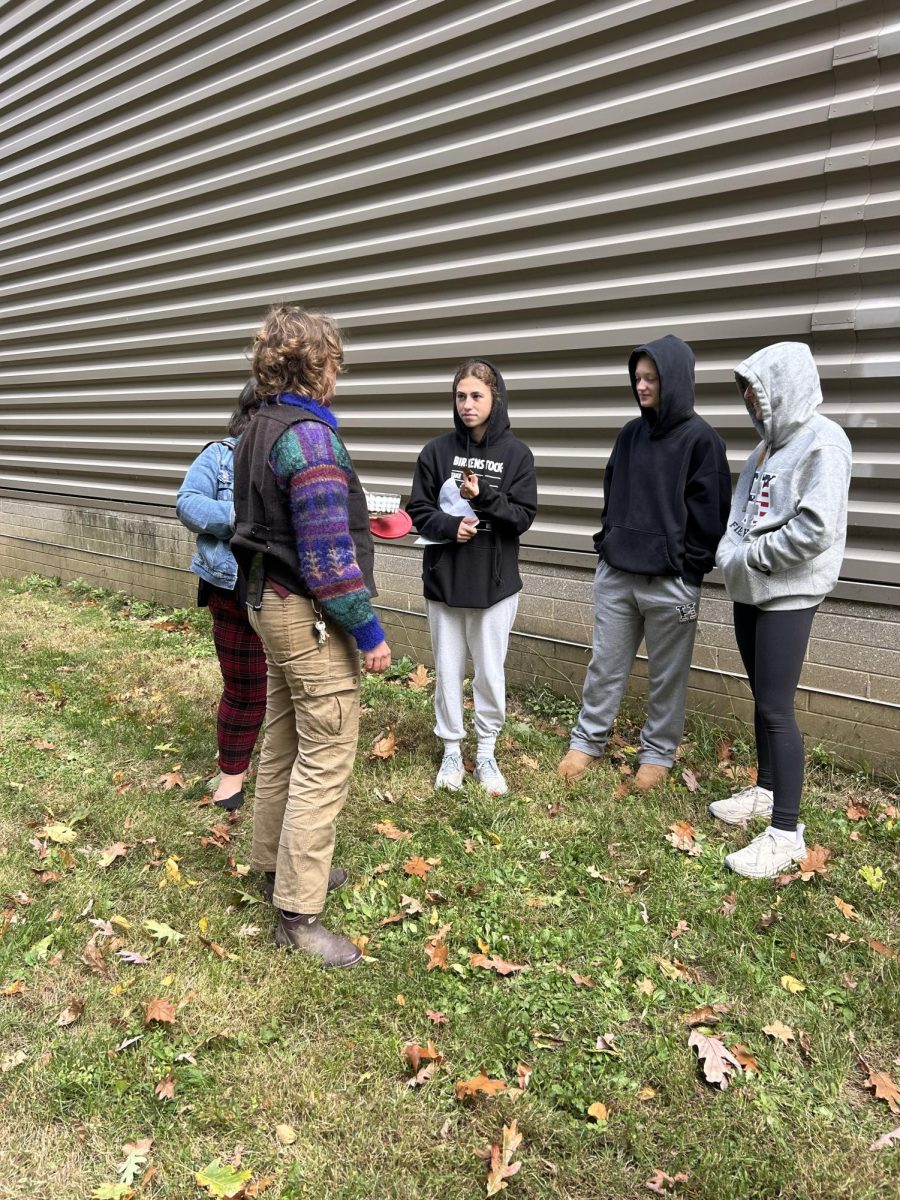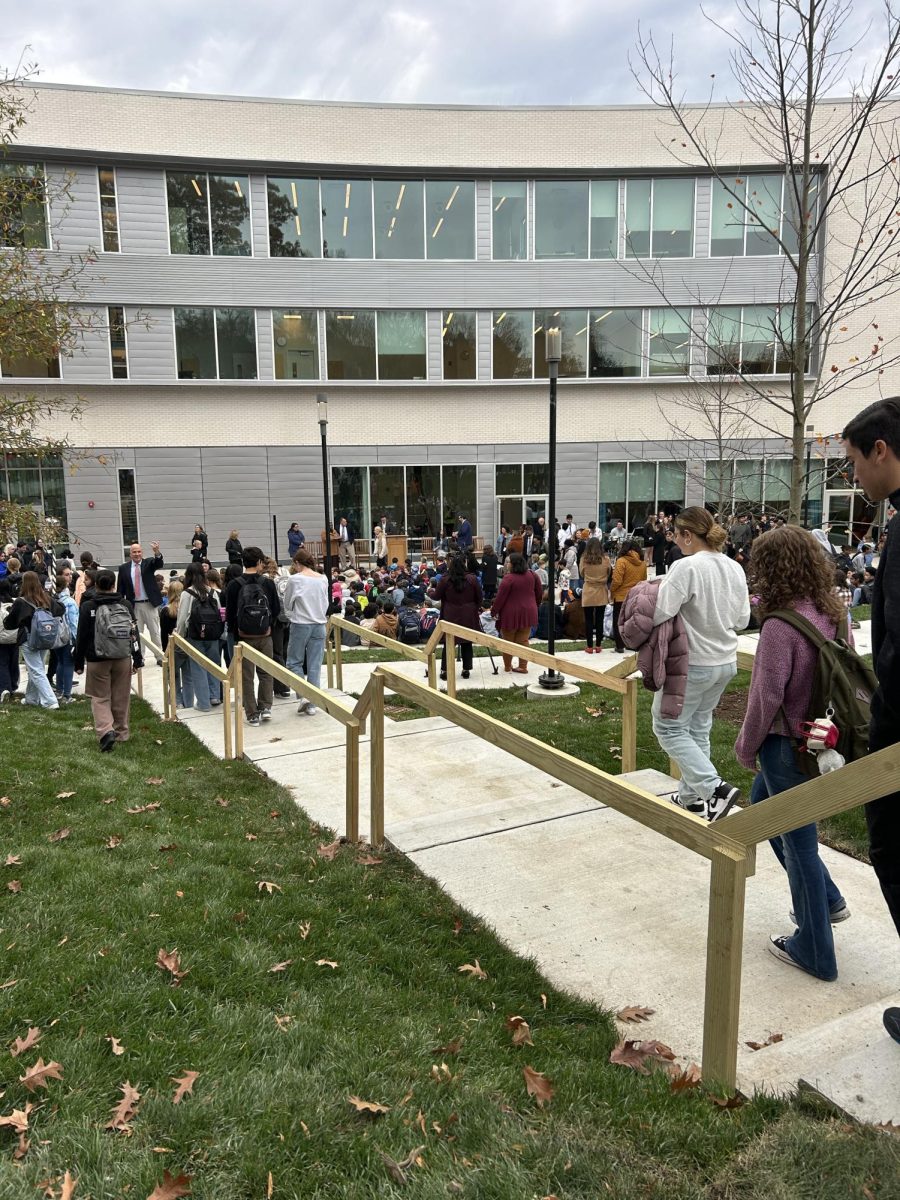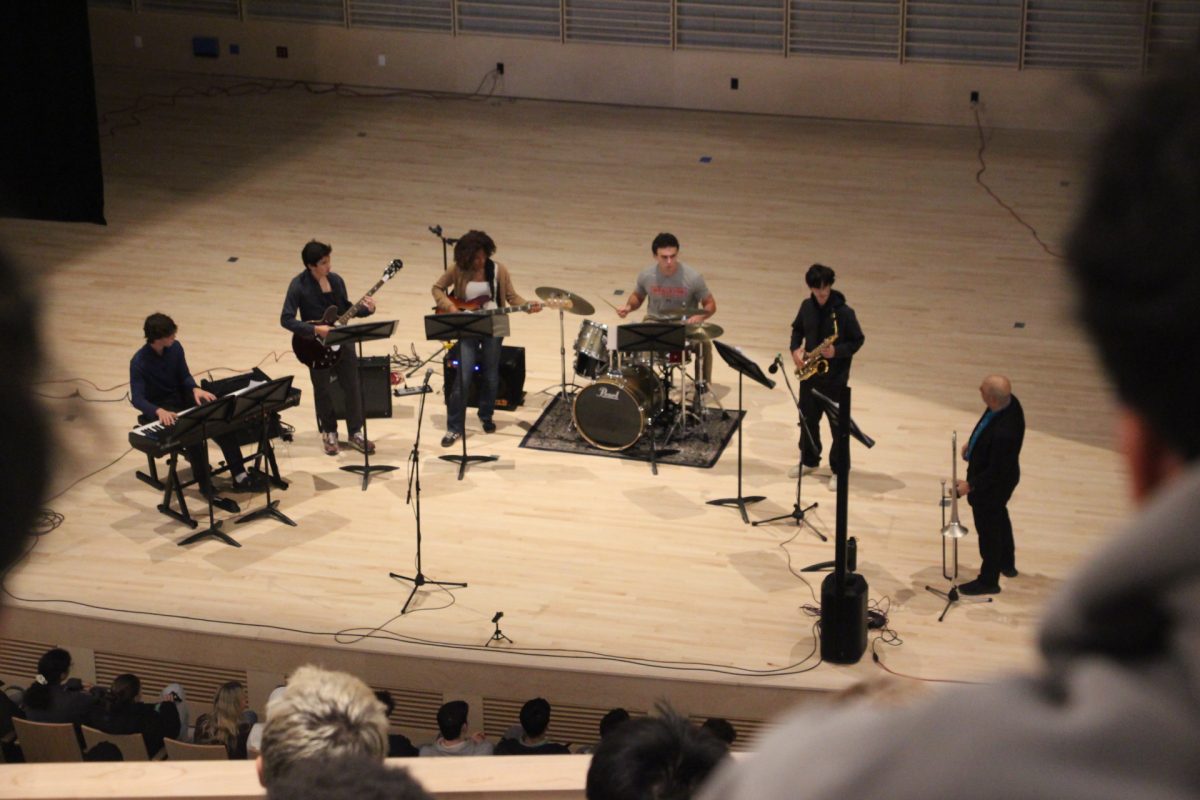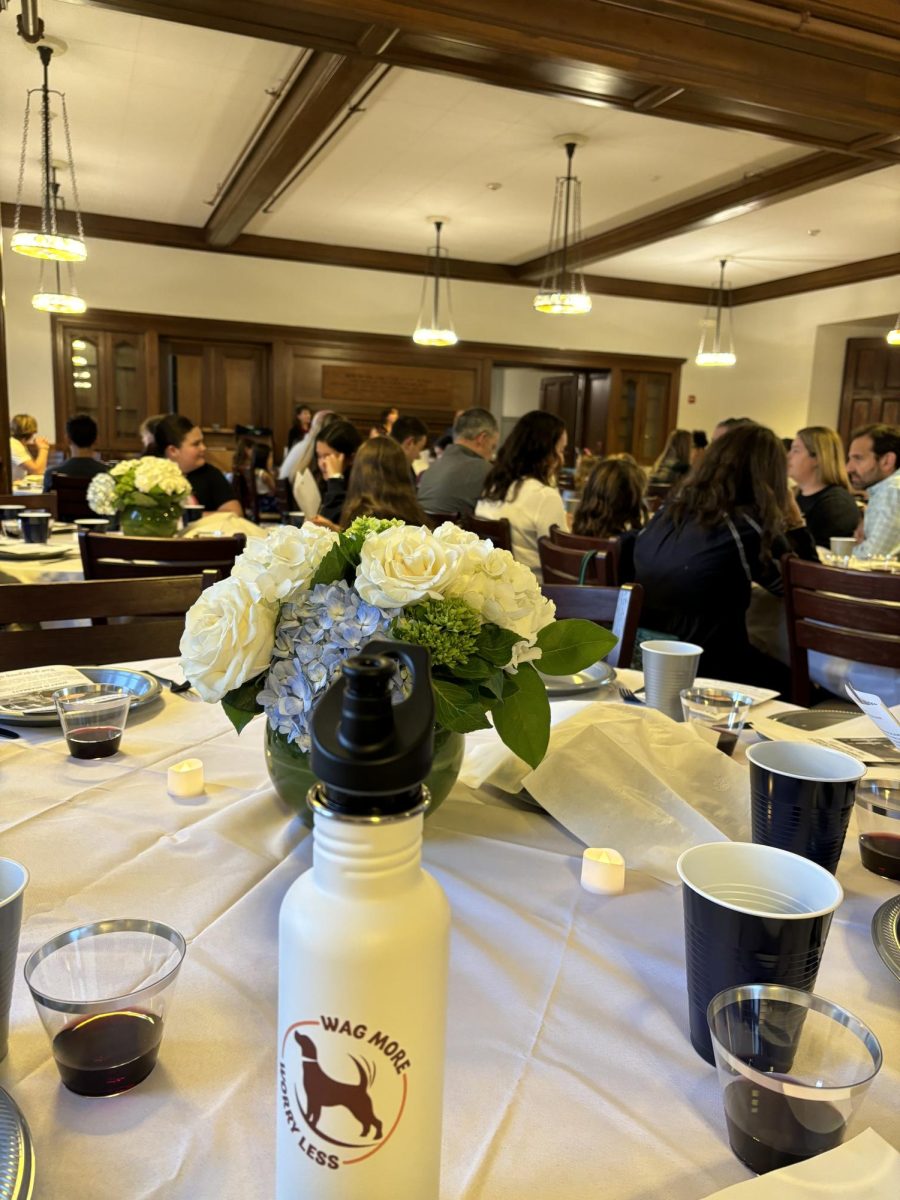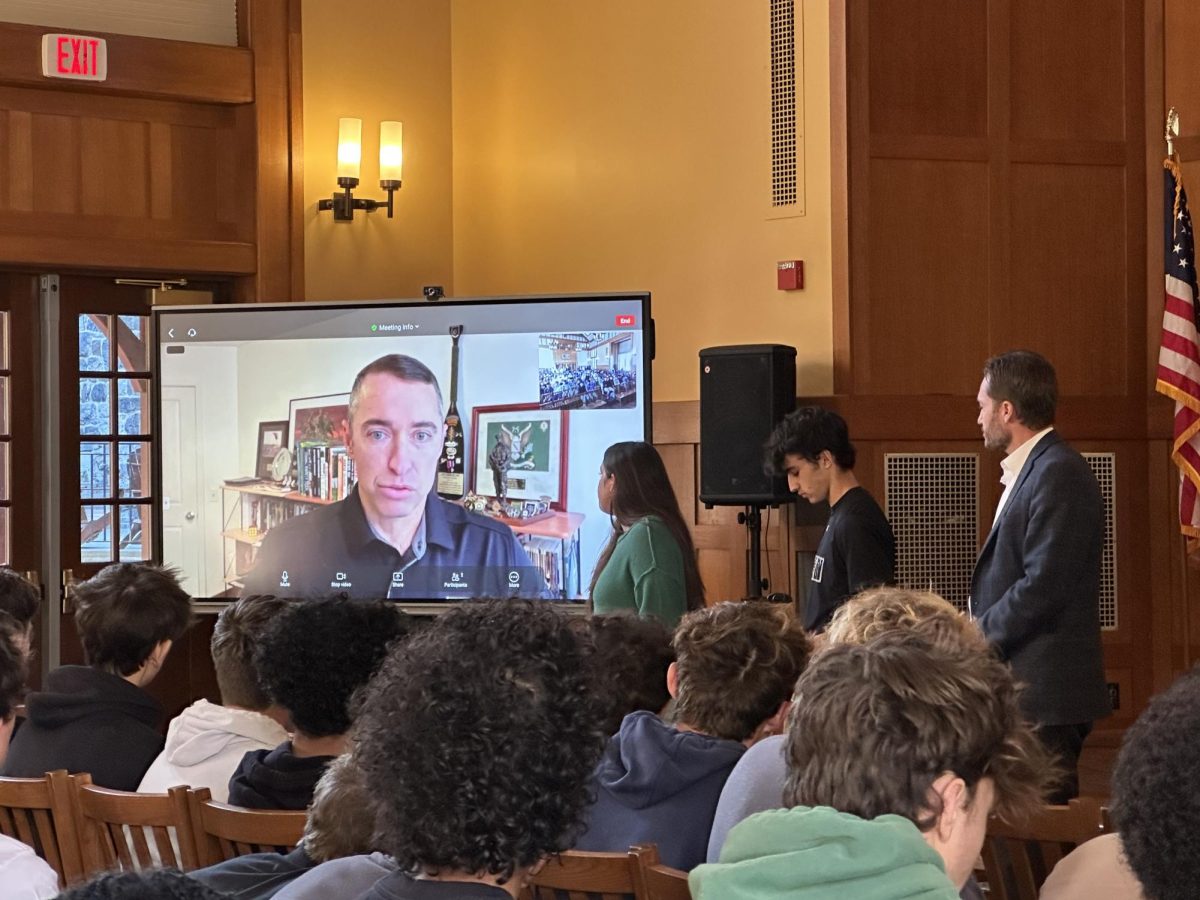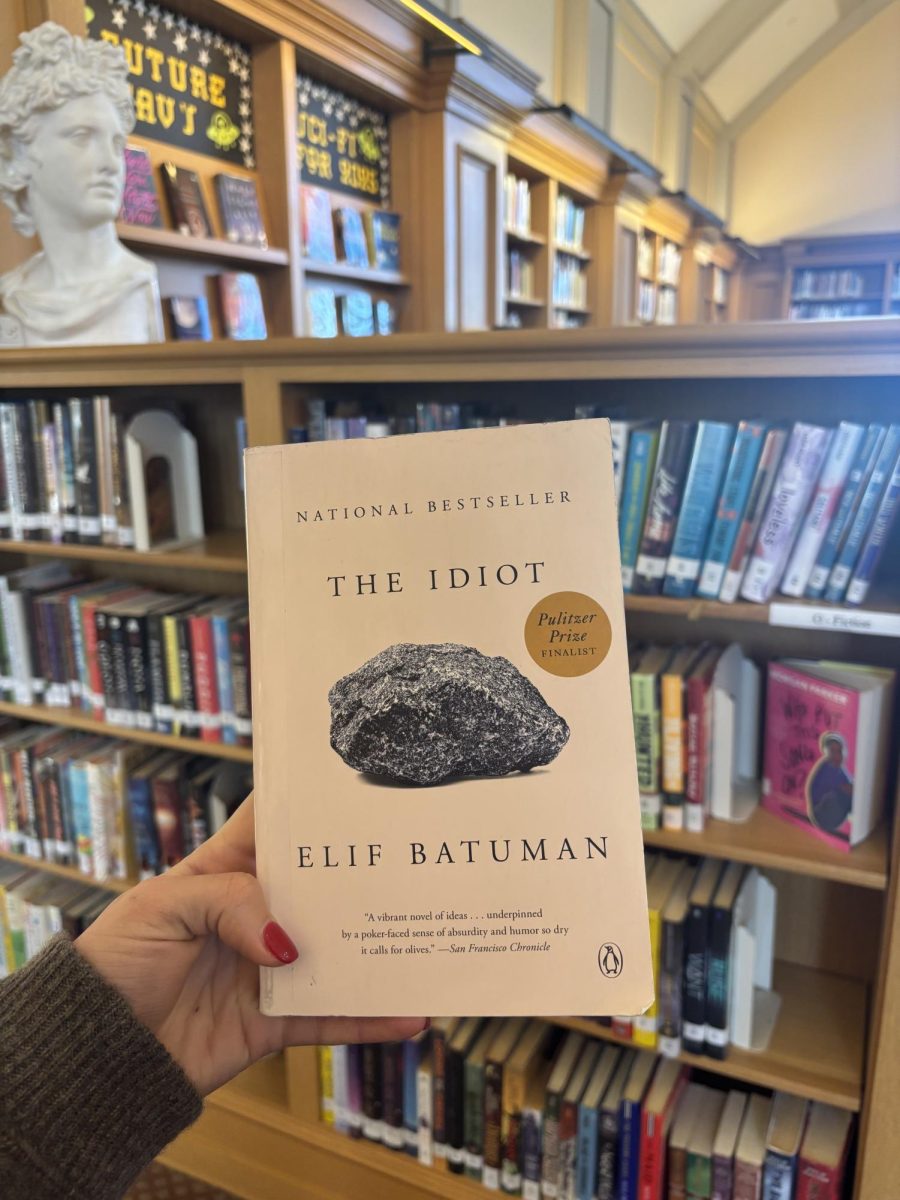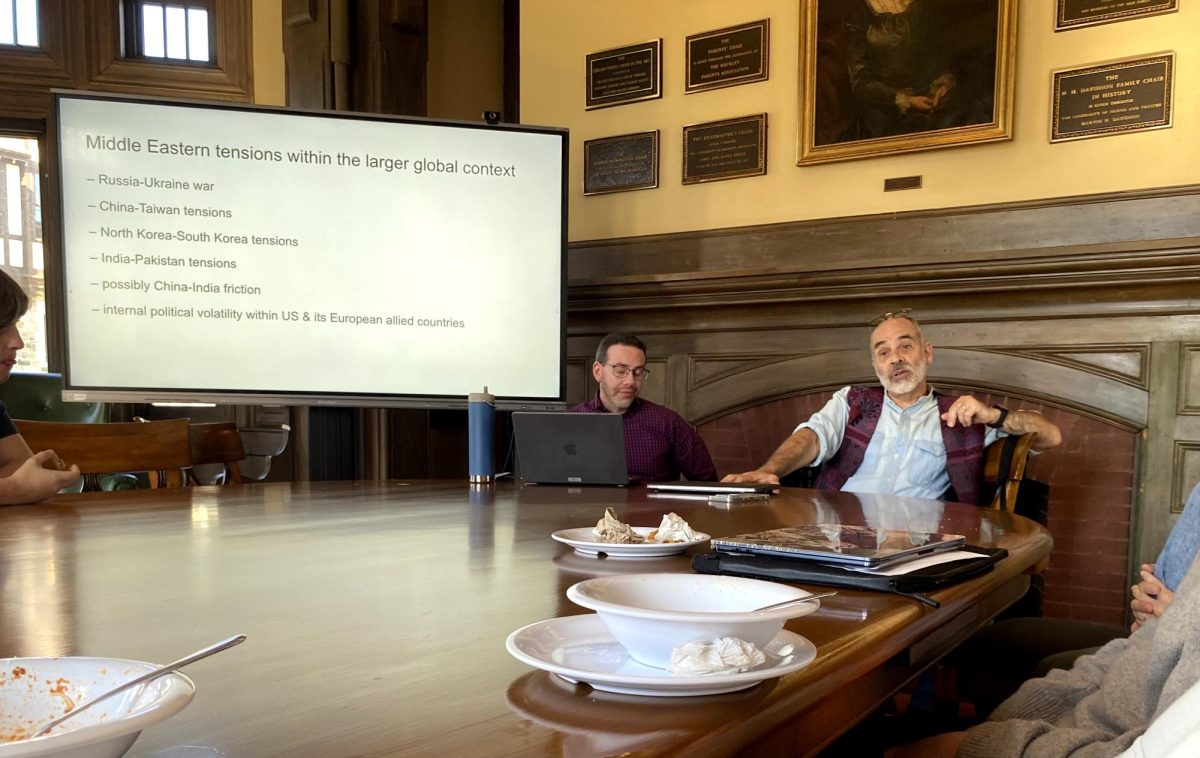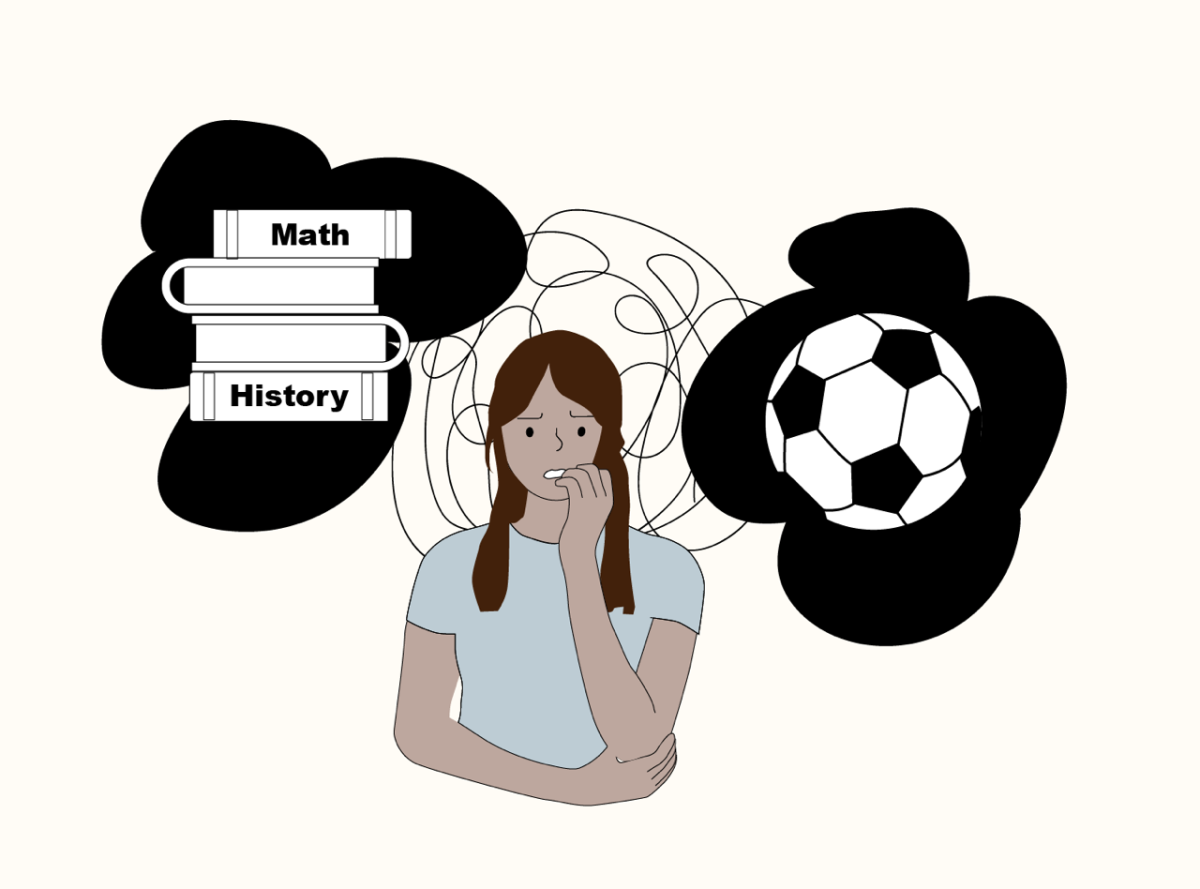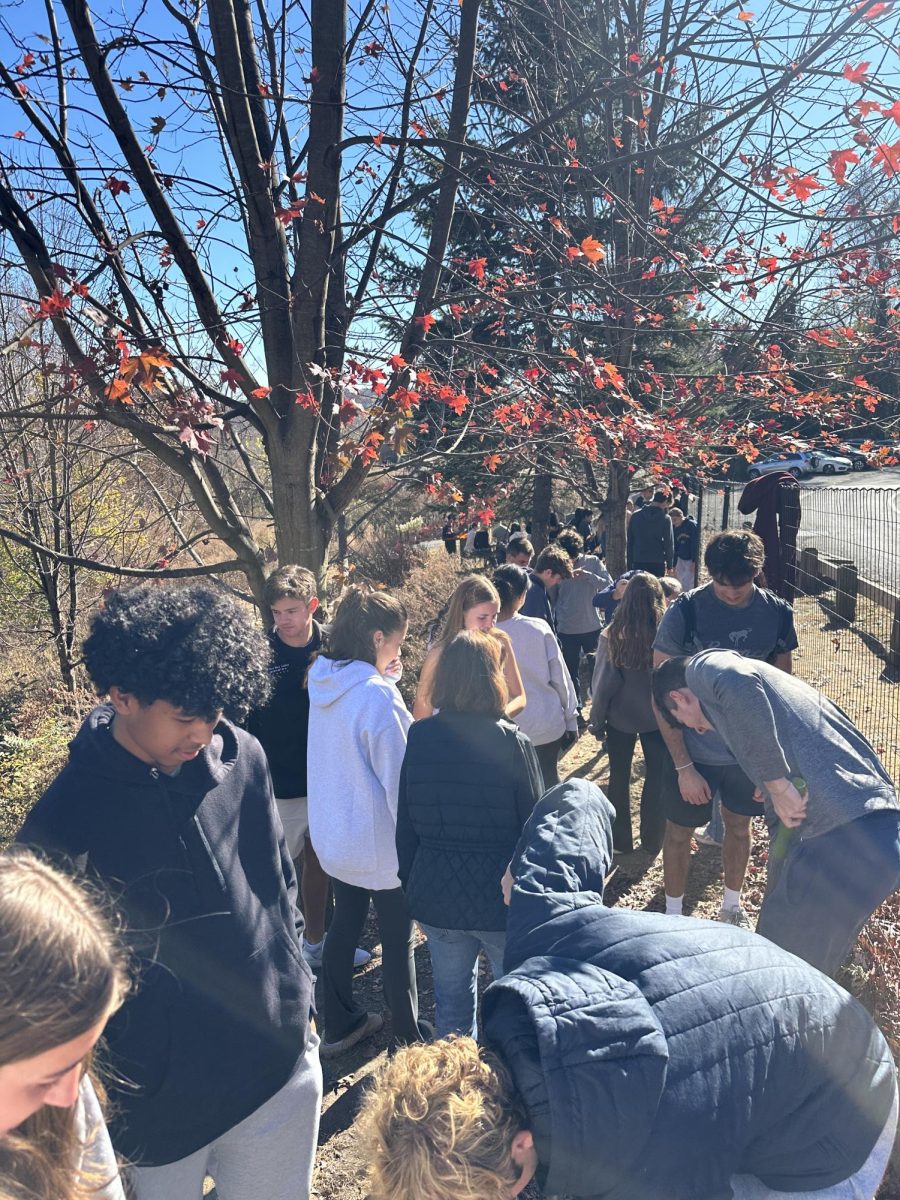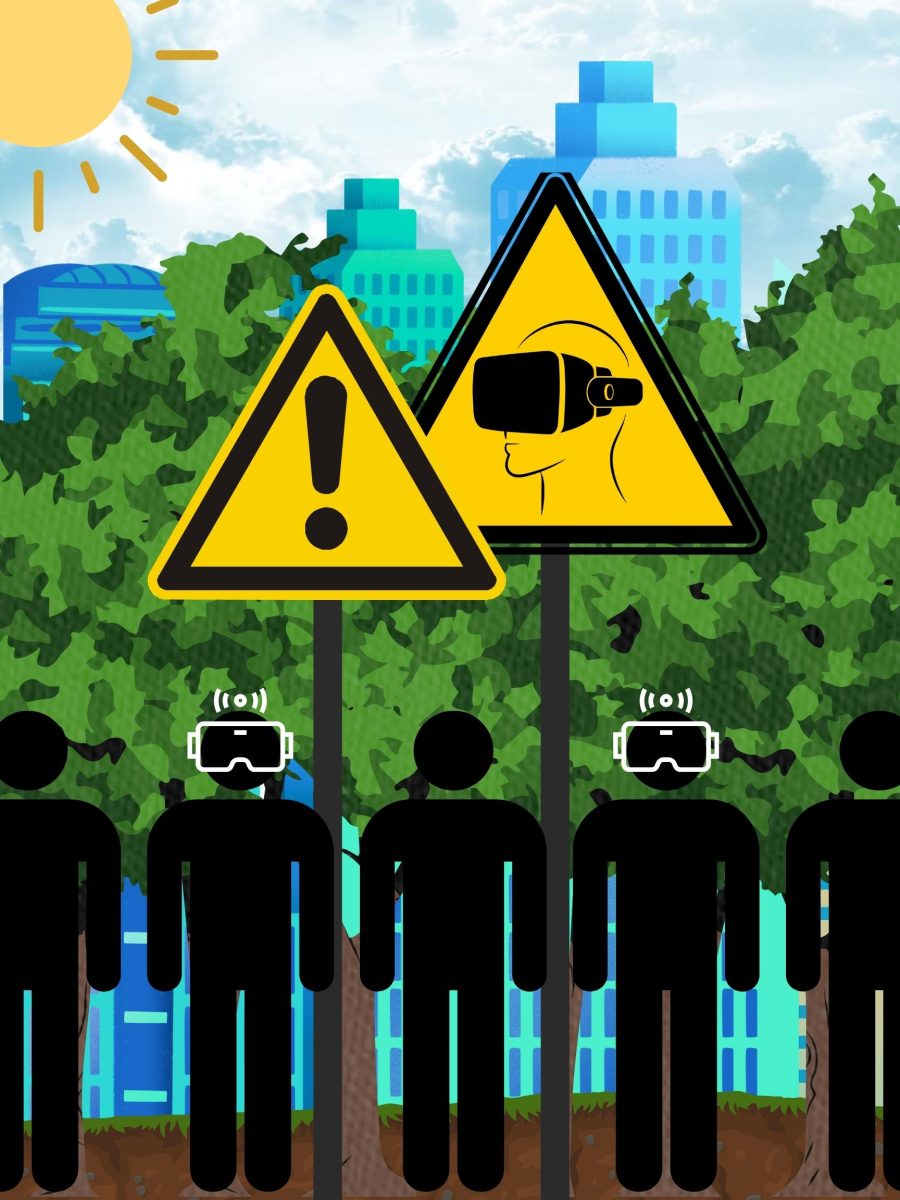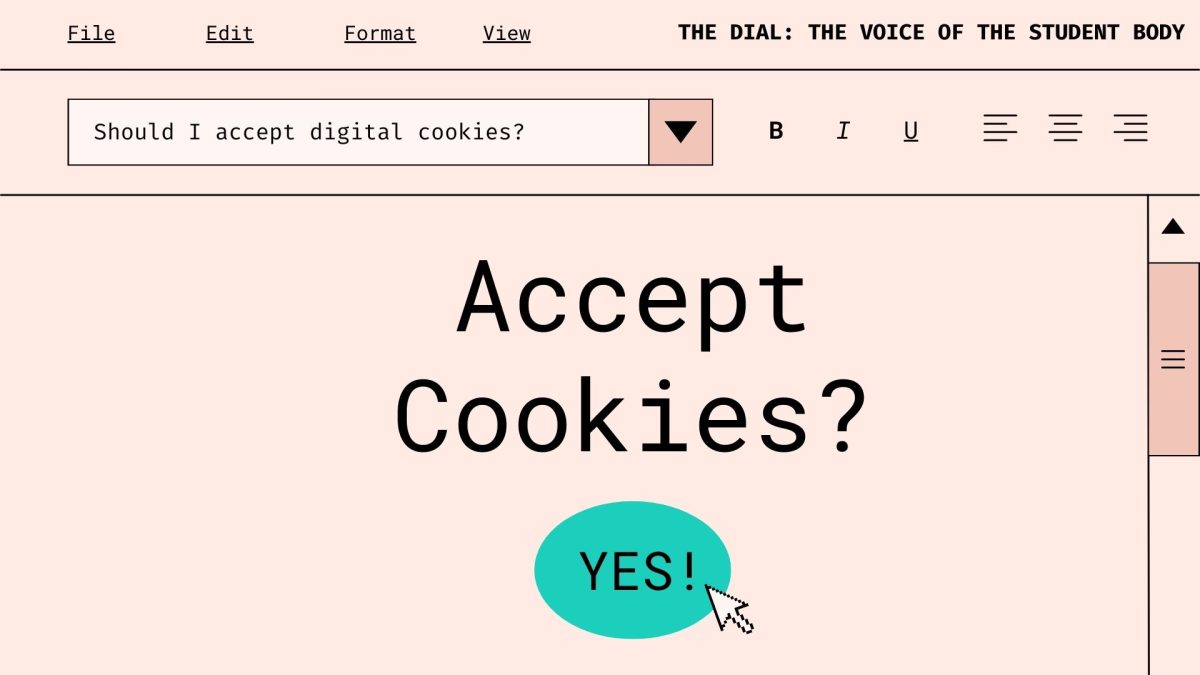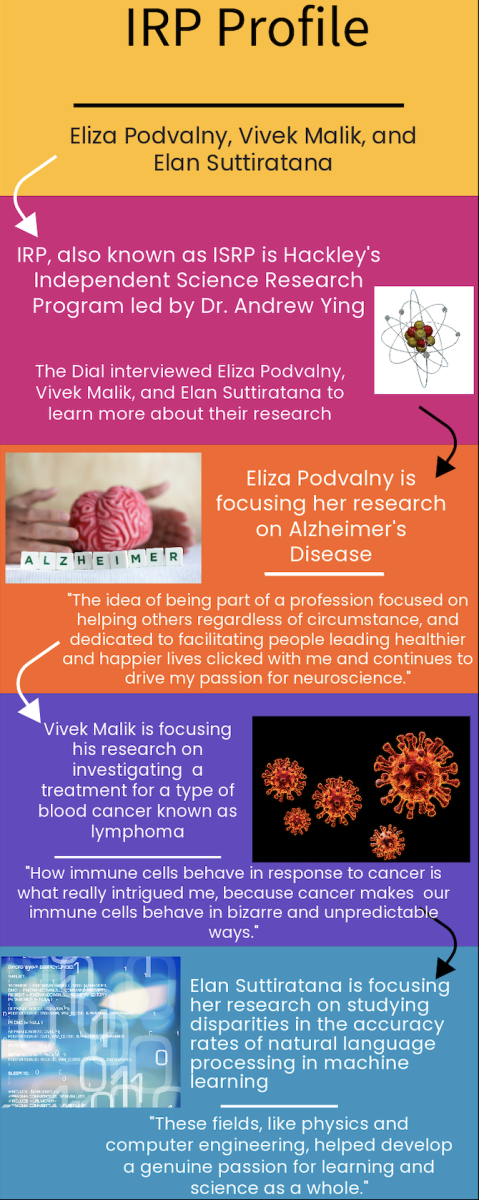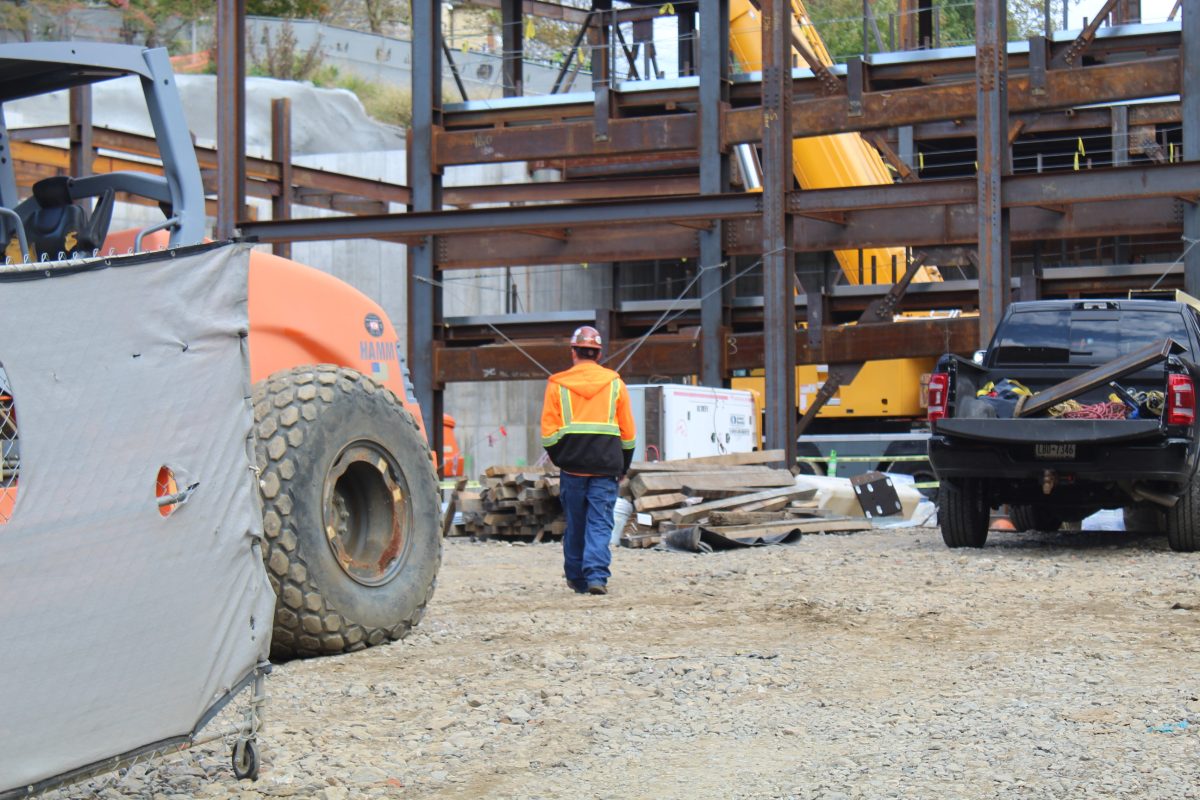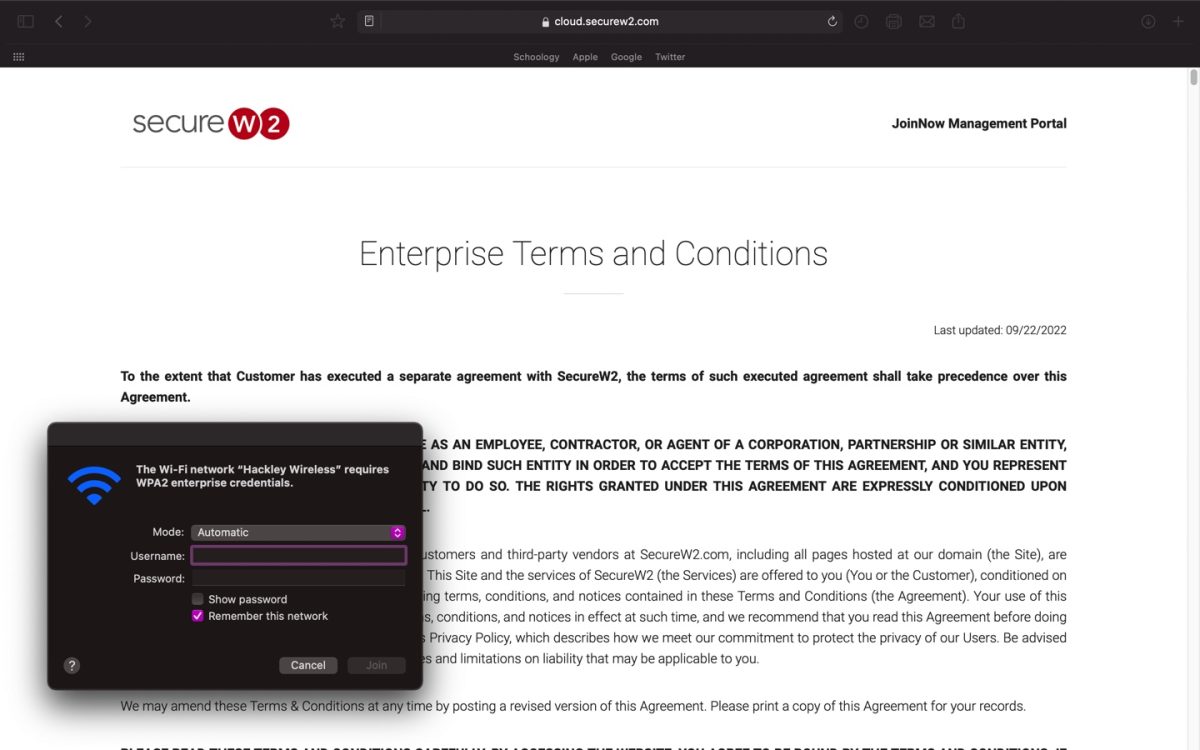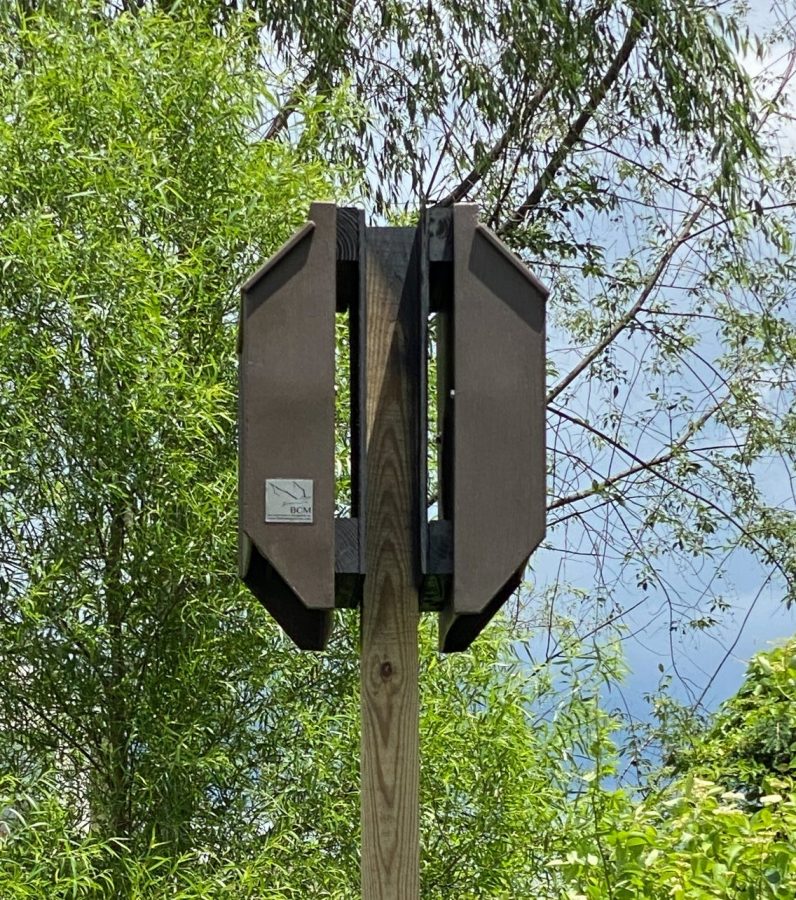Imagine leaving your whole life behind and immigrating to a foreign place due to ongoing war in your home country. Imagine losing everything your family had worked for and being the one tasked with building a new life for your family. Not only did Dara Khosrowshahi live through this experience and succeed in this feat, but he was also able to become the CEO of the most successful and respected transport company of our time, Uber.
On Friday, November 22, Dara Khosrowshahi ‘87 gave the first Forbes Lecture hosted in Diller Hall. In 1989, Hackley’s Forbes Lecture was established by Malcolm S. Forbes ‘37 to honor his late brother Bruce and introduce contemporary issues and topics of interest to the hilltop. Previous speakers have included Steve Forbes, Barack Obama, Paul Robeson, Jr., David Einhorn, and Howard Zinn.
Mr. Khosrowshahi is currently the CEO of the transport company Uber. He has worked at IAC, USA Network, and Expedia, where he served as the CEO. Barry Diller, whom the theater is named after, was a close friend, colleague, and mentor of Mr. Khosrowshahi.
The assembly started with a jazz performance, in which senior Jack Magidson played the piano and senior Phillip Mahamedi played the saxophone. Senior Class President Meredith Lee introduced Mr. Khosrowshahi, reading a short bio of his time at Hackley and beyond.
Early & Personal Life
In 1978, Mr. Khosrowshahi was forced to flee his home country, Iran, during the First Gulf War, moving to America with his Uncle and his children, Kevin and Cameron. His own experience of immigrating to the United States has made him a strong supporter of legal immigration. Mr. Khosrowshahi’s three biggest influences were Hackley, Herbert Allen, and Barry Diller.
As an adult, Mr. Khosrowshahi’s favorite thing to do with his family is eat his mother’s cooking and simply spend time with them. His favorite dish is Tachin, an Iranian food that she makes.
“Food is her [his mom’s] love language, and it’s the best in the world. Just having meals at home, chatting away with my brothers, and hanging out with my family is the best thing, because then I don’t think about work and I get to just be myself. There’s a lot of pressure in professional life, and my professional life is quite public, and getting rid of the public mask that you sometimes have to put on and just hanging out with your family is my favorite,” said Mr. Khosrowshahi.
Hackley & Beyond
Mr. Khosrowshahi moved to Tarrytown, where a family friend recommended he attend Hackley. He described being lucky to have been accepted to the school and believes that it played a fundamental role in his development as a person and greatly prepared him for college. Throughout his time at Hackley, Mr. Khosrowshahi was the Community Council Vice President, graduated as part of the Cum Laude Society, won different science prizes, was the captain of Boys Varsity Soccer, participated in both Varsity Wrestling and Lacrosse, and won the Bruce F. Roberts scholar-athlete award.
Like many other students, some of his fondest childhood memories were made at Hackley. Mr. Khosrowshahi enjoyed science and math the most, acknowledging math classes with Mr. Clark and biology with Ms. Szabo, who is also honored with an annual lecture. His love for human mystery and adventure started on the Hilltop, and he had the most fun winning championships in lacrosse and soccer and hanging out with friends.
Mr. Khosrowshahi also claims responsibility for a speed bump on the hill; as he was driving on campus once, his car slid out, leading Hackley to add a speed bump. Mr. Khosrowshahi’s family counts the most students and alumni of any family. He currently has two sons attending Hackley.
Mr. Khosrowshahi received his bachelor’s degree in economics from Brown University.
“I found that Hackley prepared me incredibly well for Brown University. I felt I got off to a running start, especially in engineering, which is a very challenging major at Brown. I thought that the math courses, physics courses that I took at Hackley prepared me incredibly well. What I was unprepared for was a social life and all of the distractions that you see in college, and I was able to block that out for a while and really focus on work, but Hackley is an incredible preparation for school,” said Mr. Khosrowshahi.
He was part of the Sigma Chi fraternity at Brown, taking after his brother, who was also a member. He enjoyed bonding with his fraternity brothers, who he still sees regularly, but also emphasized the importance of making friends with a diverse group of people.
At Brown, Mr. Khosrowshahi wanted to finish his engineering degree as soon as possible. He’d brag about how challenging his courses were compared to his friends whose majors were liberal arts oriented, so he challenged himself to take the hardest non-engineering courses offered at Brown and ended up falling in love. Taking these challenging courses humbled him, reshaped his personal perspective, and had more impact on him than his engineering courses. He found that the intersection between art and science was where innovation and creativity began, leaving a greater impact on him than his engineering courses.
Mentorship & First Jobs
After graduating from Brown, he worked his first job as an engineer at Allen and Company, which was run by Herbet Allen. He learned a lot from Mr. Allen, who was one of his first mentors. While Mr. Khosrowshahi believed that the values of companies were based on cash flow, Mr. Allen taught him that “the best bets in life that we make are on exceptional people.”
He worked his second full-time job for Barry Diller, who he described as a renegade and builder, as well as a friend of Mr. Allen. When Mr. Diller asked him to run Mr. Diller’s USA Networks and later IAC with him, he agreed with no hesitation. While this new opportunity would pay far less than Mr. Khosrowshahi’s steady job, he followed his passion, describing it as the best decision of his professional life.
Mr. Diller taught him to listen to both his head and his heart, as well as the importance of being confident and desiring to go against the grain. As a team, they accomplished a lot; Mr. Khosrowshahi described himself as the math guy and Mr. Diller as the rebel. Together, they bought Ticketmaster and moved it online. They made match.com into a giant personal site and put Expedia together. Mr. Khosrowshahi described his work at Expedia as a turnaround, just as it had been when he took over Uber. This experience, given the size of Expedia and having Mr. Diller’s mentorship, prepared him for the Uber experience.
As Mr. Khosrowshahi got older, he saw the patterns that Mr. Diller saw and took more risks, leading him eventually to Uber. Mr. Diller is still a mentor whom Mr. Khosrowshahi calls frequently.

At the end of his speech, Mr. Khosrowshahi advised Hackley students not to focus too much on one thing as they are going into the professional world. He emphasized that the world around us is ever-changing, and we must not ignore it. “To be influenced, you have to be open, to be open, you must embrace the unknown, the uncomfortable, to embrace the scientist and artist in each of every one of you,” said Mr. Khosrowshahi.
Living as the CEO of Uber
When Mr. Khosrowshahi took on the role of Uber CEO, it was a big risk. Uber had revolutionized transportation in our cities but had been going downhill. It was in the news for all the wrong reasons, and its culture was broken. Mr. Khosrowshahi transformed Uber from a company known for losing millions of dollars to one known for making billions of dollars.
Unlike an ordinary nine-to-five, being the CEO doesn’t have a set routine. “There is no typical day-to-day, and that’s one of the things that I love. I have some days where I will have to work on public earnings, some days when something happens that I have an emergency that I have to attend to very quickly,” said Mr. Khosrowshahi. He often spends time with Uber’s technical teams and engineers thinking about what feature sets consumers want and what to build next.
His least favorite part of his job is dealing with public markets, where he has to report earnings, communicate with investors, and tell a story. While this aspect of his job is crucial, creation is what he loves most.
“I like doing stuff. I like building. I like working on new technology. I like innovating,” said Mr. Khosrowshahi.
For Mr. Khosrowshahi, transparency is the key to success. “For me to understand what’s happening at Uber I’ve got to communicate to my team transparently and honestly — the good and the bad and everything in between. And that transparent communication allows me to hear about what’s really going on in the company. My team gives me as much bad news as they do good news, and that allows me then to be an effective manager because I’m not going to be surprised by something negative happening that my team was too scared to tell me about it,” said Mr. Khosrowshahi.
Another crucial aspect of Mr. Khosrowshahi’s job is understanding his product, which involves taking Ubers, ordering Uber Eats, driving Ubers, and delivering food.
“I think it’s really easy for employees to experience Uber as a consumer, but less of our employees drive and experience Uber as a driver. And so it’s been important for me to deliver and to drive people and understand what the experience of a driver feels like. It’s really different, and it’s much harder than you think. You know, to get in the car with a stranger and often drive to places that you don’t know, it can be scary. It can be intimidating. A lot of people think about their experience with Uber, but they don’t think about the driver. And you know, they’re humans, just like all of us,” said Mr. Khosrowshahi.
One thing that Mr. Khosrowshahi has predicted is that the future of transportation is going to be shared, electric, and autonomous. Uber can be expensive and mainly serves the upper middle class. But Mr. Khosrowshahi wants to make Uber affordable. One new innovation of Uber is the Uber Shuttle. There is one from Midtown Manhattan to Laguardia International Airport, and there was even one to Hard Rock Stadium in Miami during Taylor Swift’s concert, the Eras Tour. These shuttles, which are more affordable and available and provide people with comfortable, private, and safe transportation, fulfill Uber’s mission. Mr. Khosrowshahi expects more Uber Shuttles to pop up in the future.
“The greatest cost in Uber is what the driver makes. So building Uber Bus or X Share, where two or more people can get into a car, allow a driver to drive multiple people, and they allow us to take the price of Uber down,” said Mr. Khosrowshahi.
Uber has been and will continue to operate using AI. Uber’s algorithms are already powered by AI, determining the prices of Uber, the driver a rider is matched with, the route a driver takes, and the restaurants that are offered on Uber Eats. Mr. Khosrowshahi describes AI as “the engine that makes Uber run.”
The future of AI is expanding, however, going much further than the algorithms used to determine many of Uber’s moving parts, Mr. Khosrowshahi describes autonomous AI drivers as “promising technology” that will eventually make safer streets and reduce transportation costs.
“I think the big question is, when will these autonomous vehicles be safe enough, and how will they displace jobs? We have over 7 million people earning around the world, and we want to make sure that any transition to autonomous [vehicles] also takes into account their needs as well, and that the transition is gradual and most importantly, safe,” said Mr. Khosrowshahi.
Living a public life, Mr. Khosrowshahi often faces criticism, and there are different ways that he deals with it.
“I think that criticism can be both difficult and valuable. There are criticisms that are warranted, and even though it’s painful, I force myself to listen, because maybe I can learn something. And I’m over 50 years old, but I want to keep learning as a person in my life. And then there are some criticisms that are just mean-spirited. They’re not substantive, and you have to learn to block those out,” said Mr. Khosrowshahi.
Q&A
After the conclusion of his speech, Mr. Khosrowshahi took questions from various Upper School students. Students asked about topics ranging from how Uber drivers are verified to how Mr. Khosrowshahi is able to take risks.
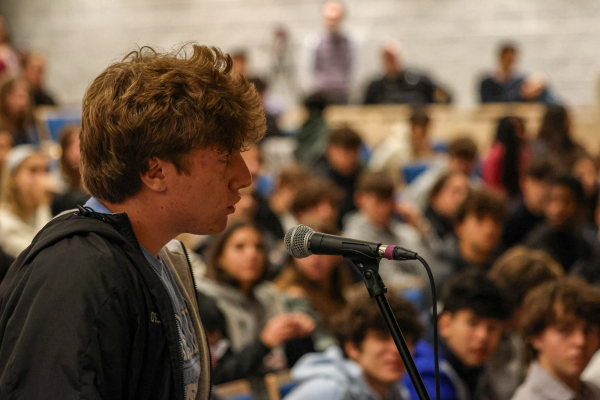
At the end of Mr. Khosrowshahi’s speech, students were invited to ask Mr. Khosrowshahi questions. Senior Thomas O’Brien asked how Uber stands out from its competitors. Mr. Khosrowshahi emphasized the importance of Uber being a company that not only delivers food or drives people around, but does both, and can serve as an everyday system of operation.
Senior Thomas O’Brien asked what Uber does to stand out from its competitors. Mr. Khosrowshahi described that it’s crucial for Uber to be very broad in their services. While many competitors are transporting either food or people, Uber does both. They try to be an operating system for everyday life in a city.
“Anything that moves in your city, we want to wire it up, regardless of if it moves people or if it moves things. And we’re even wiring up delivery for small businesses as well,” said Mr. Khosrowshahi.
Senior Mika Nuzum asked Mr. Khosrowshahi what success means to him. In his personal life, success is measured by his meaningful relationships and life-long friendships. With his family, he’s the second youngest cousin, not the CEO of Uber.
In his professional life, having long-term relationships is similarly a key aspect of success. “I see people who jump around companies. They’re at company A for three years, company B for three years, etc. That’s not enough time to make a deep personal relationship,” said Mr. Khosrowshahi.
Junior William Linnett asked Mr. Khosrowshahi for his perspective on success and if he believes people are products of their environments or if drive and success are intrinsic traits. Mr. Khosrowshahi commended him for a great question and stated bluntly that he didn’t have the answer. He explained that many successful people have the great common quality of working their hardest, and in order to be successful, you can’t let others outwork you.
“I’ve never seen a leader who hasn’t worked an inch and a half more than others,” said Mr. Khosrowshahi.
Mr. Khosrowshahi’s Advice
Mr. Khosrowshahi advised students to forget about the career plans they had. The world will change, and being too focused on one particular thing will cause them to miss what is going on around them. He challenges students to reflect and learn when they are wrong, and embrace the contradictions they find in life.
He delivered a final message to students, saying, “To be influenced, you have to be open, to be open, you must embrace the unknown, the uncomfortable, to embrace the scientist and artist in each of every one of you.”




